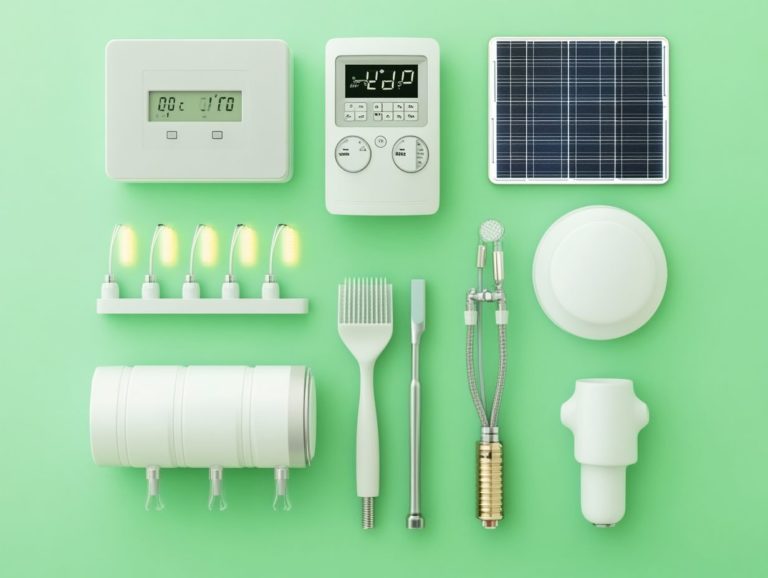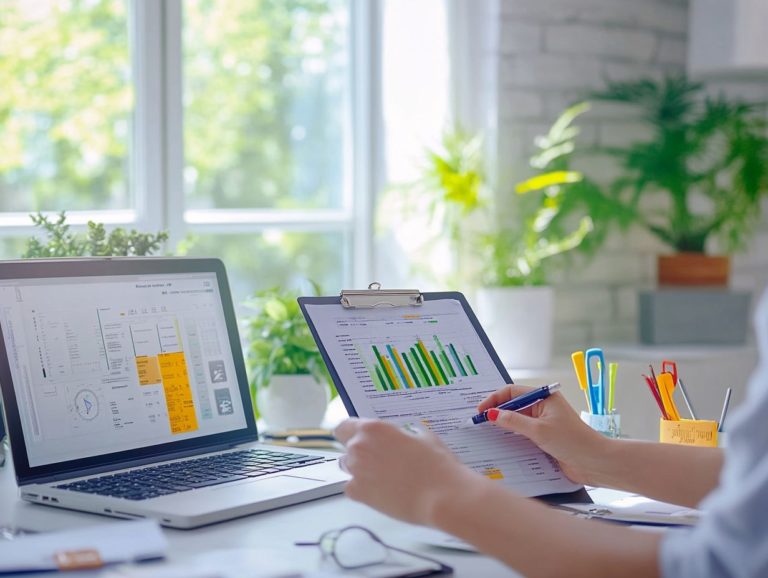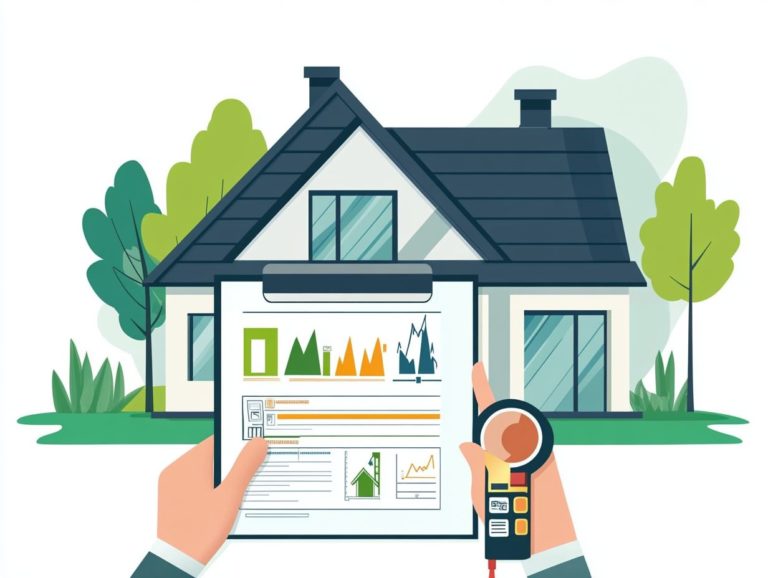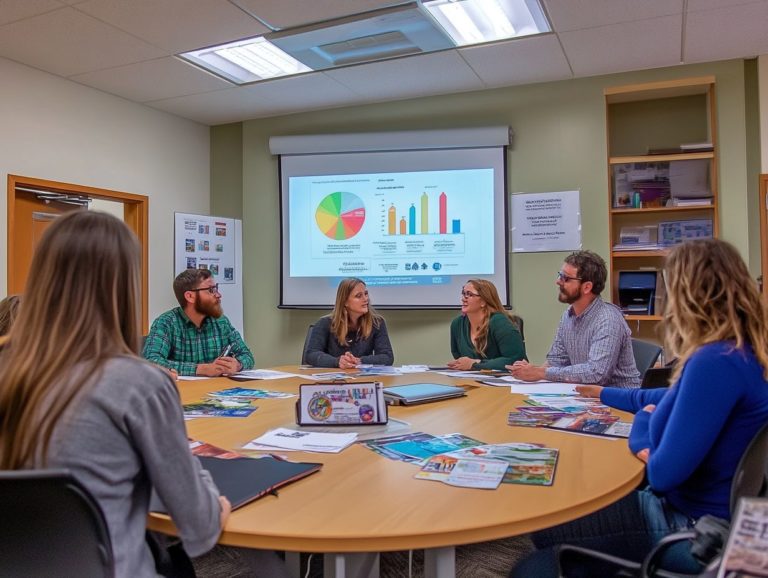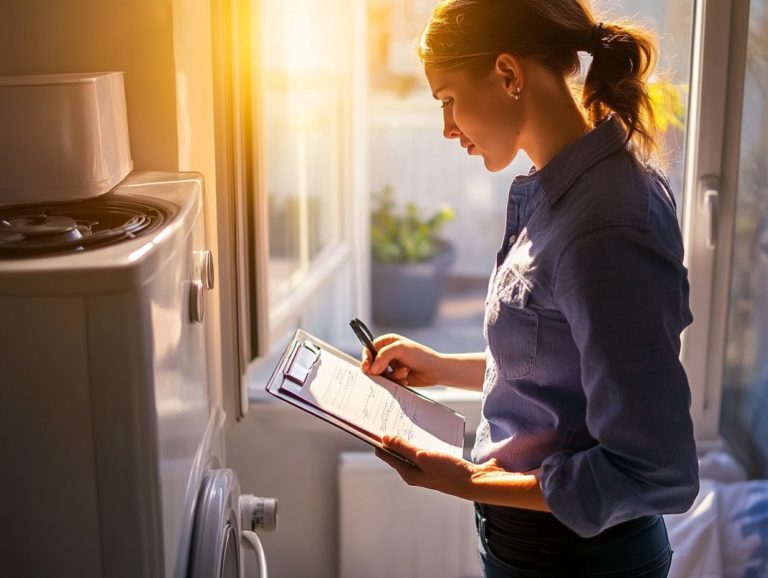5 Common Energy Efficiency Myths
Energy efficiency is often misunderstood, which can prevent individuals and businesses from enjoying its benefits.
You might think that energy-efficient practices only apply to new buildings or that they are too costly. These myths can cloud your judgment.
Let s dive into the five myths you need to know about energy efficiency, explore why it s important, and highlight the many advantages of adopting energy-saving practices.
Whether you re a homeowner, a business leader, or simply curious, discover why energy efficiency matters for everyone.
Contents
- Key Takeaways:
- 1. Energy Efficiency Is Only for New Buildings
- 2. Energy Efficiency Is Expensive
- 3. Energy-Efficient Products Don’t Perform as Well
- 4. Energy Efficiency Is Only for the Environmentally Conscious
- 5. Energy Efficiency Is Only for Homeowners
- What Is Energy Efficiency and Why Is It Important?
- Frequently Asked Questions
- What are the 5 common energy efficiency myths?
- Is it true that using energy-efficient light bulbs doesn’t make a difference?
- Does turning off electronics save energy?
- Are space heaters more cost-effective than central heating?
- Are energy-efficient products more expensive?
- Does energy efficiency only apply to homes?
Key Takeaways:
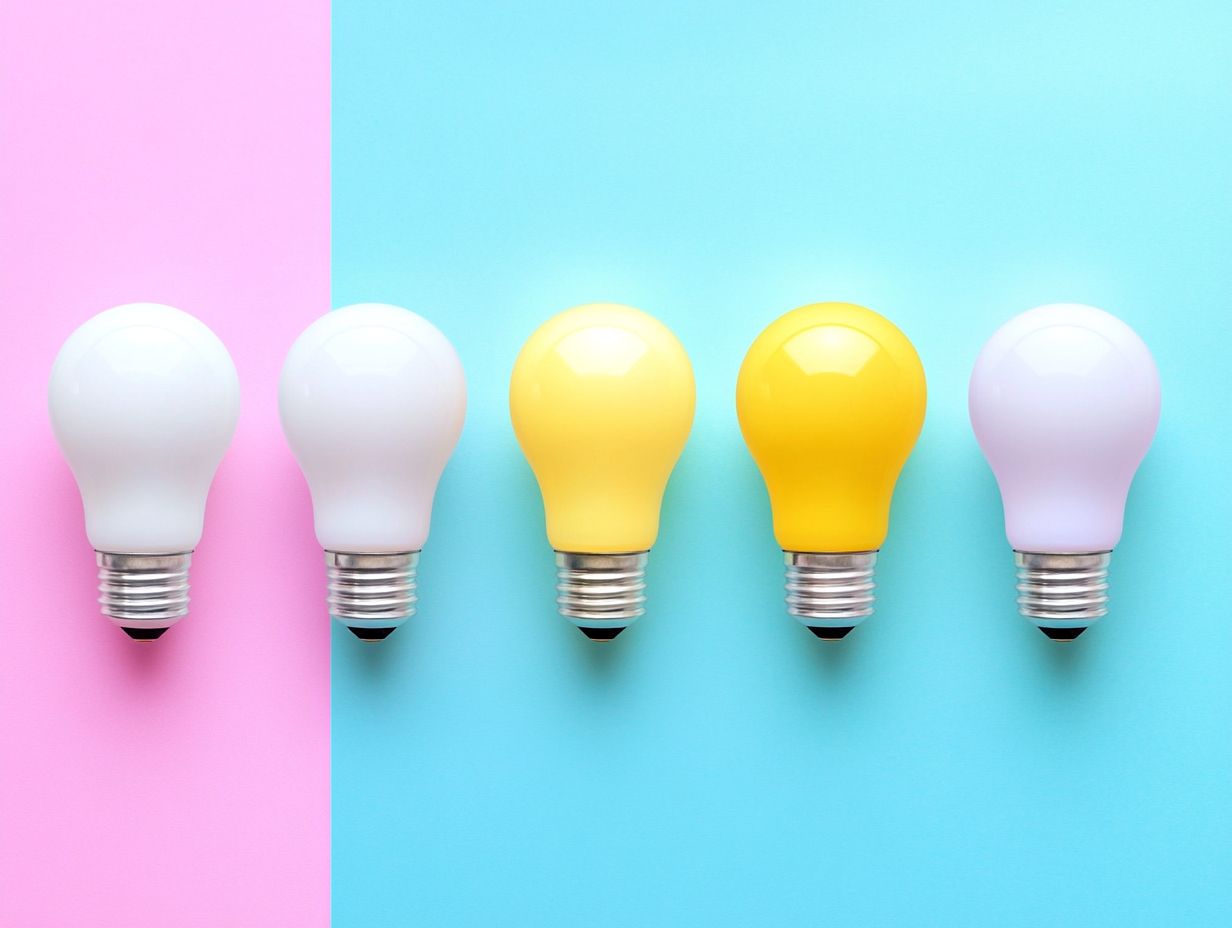
Energy efficiency is not just for new buildings; it can also be applied to existing structures.
Contrary to popular belief, energy efficiency doesn t have to be expensive and can save you money over time.
Energy-efficient products are designed to perform as well as, or even better than, traditional products.
1. Energy Efficiency Is Only for New Buildings
Many believe that energy efficiency only applies to new constructions, but there are many options available for existing homes that enhance sustainability and save you money.
Incorporating energy-efficient appliances and upgrading your insulation can significantly lower energy consumption and improve performance without a major remodel.
For example, upgrading to double or triple-glazed windows can drastically reduce heat loss. Small adjustments, like sealing gaps and cracks, help maintain a comfortable indoor climate.
Don t underestimate the impact of simple habits; turning off lights in unoccupied rooms or using smart thermostats can lead to substantial savings.
Retrofitting older structures helps reduce your carbon footprint and results in noticeably lower electric bills, proving that energy efficiency is achievable, even for vintage homes.
2. Energy Efficiency Is Expensive
Investing in energy efficiency doesn t always mean a hefty price tag. Many simple changes and affordable upgrades can lead to impressive savings over the long term.
By adopting strategies like turning off appliances when not in use and switching to energy-efficient LED bulbs, you can effectively lower your electric bills.
The initial investment in affordable energy-efficient products, like smart thermostats and energy-saving appliances, can yield significant returns. For instance, switching to a smart thermostat could reduce heating and cooling costs by up to 10%. Simply changing to LED lighting could save you up to $200 each year.
Many governments offer incentives and rebates that can cover a significant portion of these costs, making the transition to energy efficiency even more achievable.
Real-life examples show families that have cut their energy costs by 30% after making these upgrades. This path to energy efficiency is not only feasible; it s also financially rewarding.
3. Energy-Efficient Products Don’t Perform as Well
A common myth is that energy-efficient products perform worse than traditional ones; however, many energy-efficient options, like heat pump dryers and energy-saving dishwashers, deliver excellent results while reducing energy use.
These appliances help save energy and lead to lower heating and cooling costs over time.
Many users report impressive improvements in performance, often finding that these innovative solutions clean clothes more thoroughly and dry them more effectively than traditional models. One happy user said, “My energy-efficient dishwasher not only saves me on utility bills but also makes my dishes sparkle like never before.”
With features like adjustable settings and smart technology, these appliances make energy management easy, allowing you to embrace a more sustainable lifestyle without sacrificing quality or convenience.
4. Energy Efficiency Is Only for the Environmentally Conscious
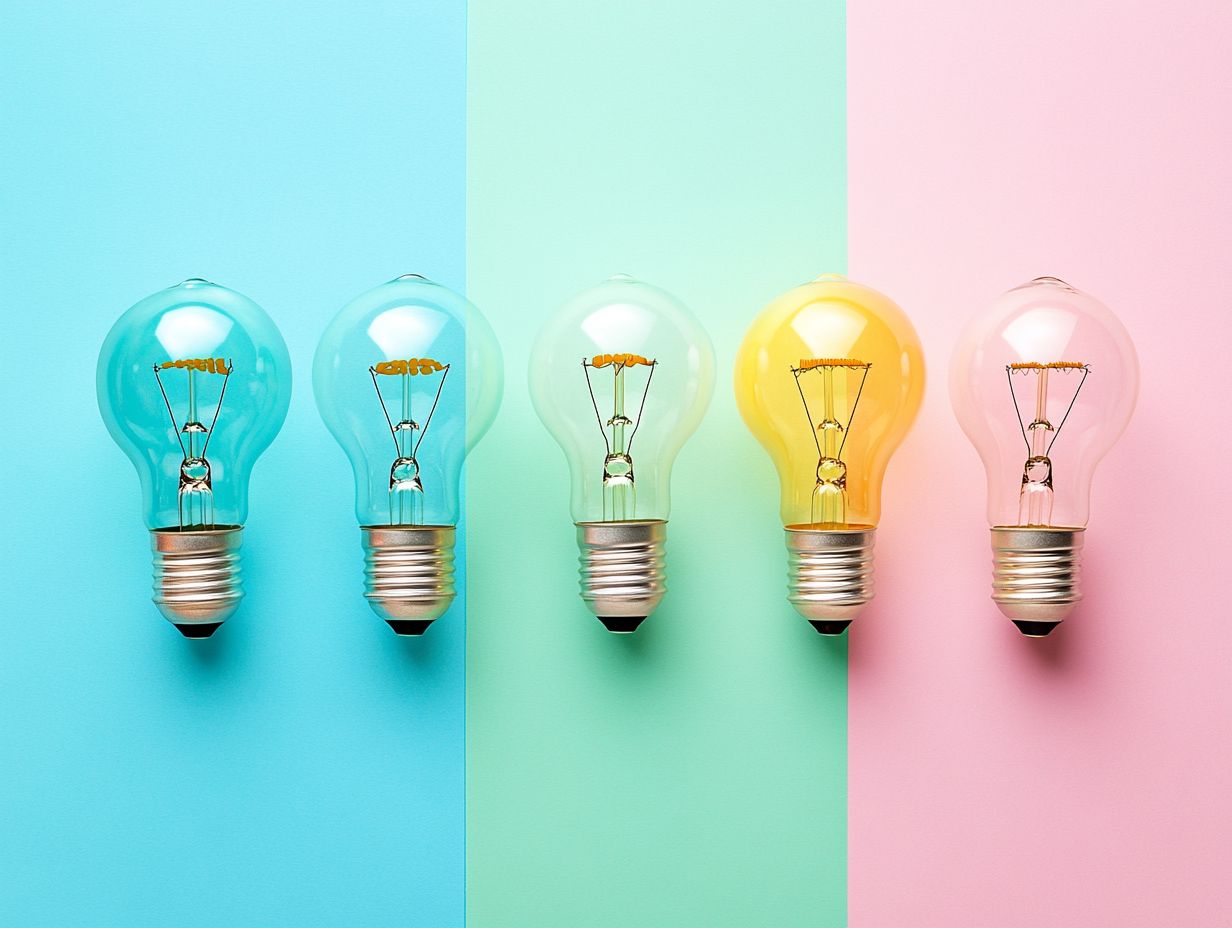
While environmental consciousness certainly plays a vital role in energy efficiency, it’s a common misconception that only the eco-minded should prioritize energy-efficient practices. In reality, everyone stands to gain from reducing energy use and minimizing waste.
This ultimately leads to lower electric bills and enhanced comfort. Simple actions can make a significant difference. For instance, using ceiling fans for cooling or electric space heaters in winter is effective.
Statistics show that residential energy consumption often accounts for around 20% of overall energy use in many countries. This reveals a substantial opportunity for improvement. By adopting energy-saving techniques such as sealing drafts around windows and doors or switching to LED lighting households can expect to see a reduction in energy bills by 20-30%.
These small adjustments elevate the overall comfort of your living spaces. They also contribute to long-term financial savings.
Investing in energy-efficient appliances can save you even more money, as they typically consume up to 50% less energy than their conventional counterparts. Embracing these changes is not just a smart financial move; it’s a step toward a more sustainable lifestyle.
5. Energy Efficiency Is Only for Homeowners
Many people mistakenly believe energy efficiency is just for homeowners. As a tenant, you have the power to implement various energy management techniques that can significantly improve your energy efficiency and lower your utility bills.
By making simple behavioral adjustments like using smart thermostats to fine-tune heating and cooling or being mindful of how you use appliances you can enjoy energy savings without extensive renovations.
Consider using energy-efficient bulbs and unplugging devices when they re not in use to further amplify your impact. You might also engage your landlord in discussions about potential upgrades, such as improved insulation or more efficient window treatments.
These enhancements elevate your living environment and contribute to the overall property value. By fostering a culture of sustainability, landlords can inspire tenants like you to embrace greener practices.
This often results in reduced operational costs and heightened tenant satisfaction. Ultimately, cultivating an energy-efficient lifestyle creates a win-win scenario, enhancing your comfort while positively impacting the environment.
What Is Energy Efficiency and Why Is It Important?
Energy efficiency means using less energy to get the same results. This is crucial for reducing energy consumption and enhancing overall performance in your home or business.
With rising energy costs and mounting environmental concerns, improving energy efficiency through superior home insulation and utilizing appliances that meet energy efficiency guidelines set by the U.S. Environmental Protection Agency has become a top priority.
This approach leads to significant savings on your utility bills and plays a pivotal role in reducing greenhouse gas emissions. It contributes to a more sustainable future.
You can enhance your energy efficiency by incorporating effective insulation techniques that minimize heat loss in winter and maintain cooler temperatures in summer. By adopting energy-saving appliances, you’ll drastically reduce the energy needed for everyday tasks.
Simple behavioral adjustments like turning off lights when leaving a room or using programmable thermostats reinforce the overall impact. Collectively, these strategies foster a culture of resource conservation.
This carries profound implications for creating a healthier planet for future generations.
What Are the Benefits of Implementing Energy Efficiency?
Implementing energy efficiency measures offers a wealth of benefits. Significant energy savings can dramatically lower your electric bills and reduce heating and cooling costs. This enhances your overall comfort at home.
By using energy wisely through smart practices and energy-efficient products, you can embrace a more sustainable lifestyle while enjoying financial savings. Studies reveal that households adopting energy-efficient appliances can achieve reductions of up to 30% in their utility bills annually translating to hundreds of dollars saved each year.
Improved insulation and smart thermostats maintain stable indoor temperatures and contribute to a healthier environment by lowering greenhouse gas emissions. For businesses, investing in energy-efficient lighting and equipment boosts productivity and cuts operational costs significantly.
Thus, energy efficiency bolsters personal finances and fosters a more comfortable, eco-friendly community for everyone.
What Are Some Simple Ways to Improve Energy Efficiency?
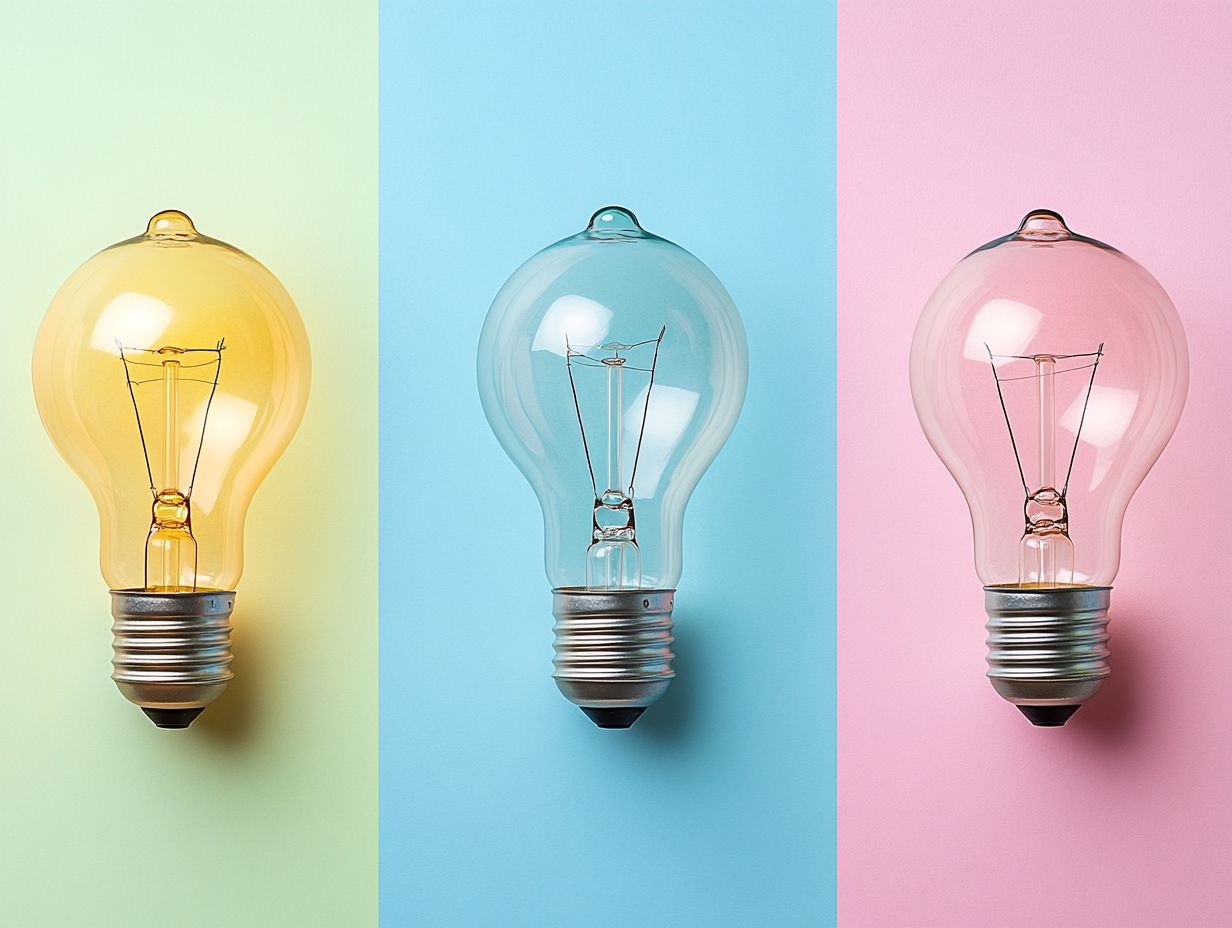
Now is the time to improve your energy efficiency through simple and practical methods. You can make a few behavior changes, optimize your thermostat settings, seal air leaks, and enhance insulation to significantly reduce energy consumption.
These straightforward tactics help both homeowners and tenants create more comfortable and energy-efficient living spaces. Incorporating energy-efficient appliances and LED lighting can also decrease your electricity use without sacrificing comfort.
Regular maintenance of your heating and cooling systems is crucial. A well-tuned furnace or air conditioner operates at peak efficiency, leading to notable reductions in your utility bills.
Monitoring your energy consumption with smart meters or apps provides valuable insights into your usage patterns, enabling you to make informed adjustments.
By embracing these methods, you lower your energy costs and positively contribute to environmental sustainability, ultimately fostering a healthier home and planet.
How Can Businesses Benefit from Energy Efficiency?
Unlock amazing rewards by embracing energy efficiency initiatives! You can achieve significant reductions in your utility bills, enhanced energy savings, and improved operational performance through better energy management practices.
By investing in energy-efficient appliances and systems, you lower your energy costs and contribute to a more sustainable economy.
These initiatives boost profitability and strengthen your competitive edge in the marketplace.
For instance, consider a mid-sized manufacturing firm that adopted energy-efficient machinery it reported a remarkable 30% decrease in energy consumption. This translated into substantial savings that were reinvested into innovation and employee training.
When you prioritize energy efficiency, you enhance your corporate responsibility image, attracting environmentally conscious consumers and stakeholders.
Showcasing successful case studies illustrates that making the switch benefits your bottom line while aligning your business with a greener future.
What Are Some Common Misconceptions About Energy Efficiency?
Energy efficiency is often clouded by a myriad of myths and misconceptions that can prevent you from fully embracing its benefits. You might think it requires hefty investments or that only certain appliances are worth the upgrade. Tackling these energy audit myths is crucial for a clearer understanding of how small, manageable behavior changes can significantly impact your energy consumption.
In reality, many energy-saving strategies are incredibly accessible and can be implemented with little to no cost. Simple actions like adjusting your thermostat settings, sealing drafts, or making the most of natural light can lead to substantial savings on your energy bills over time.
It’s a common misconception that only high-end appliances contribute to energy efficiency. In fact, even older models can be enhanced for better performance with straightforward upgrades, such as incorporating energy-saving settings or ensuring they are properly maintained.
By uncovering these truths, you can make informed choices that not only benefit your household but also have a positive ripple effect on the environment.
What Is the Future of Energy Efficiency?
Exciting innovations are shaping the future of energy efficiency! This evolution is driven by technological advancements and a growing awareness of the need for sustainable energy management solutions.
As smart thermostats and energy-efficient appliances become more prevalent, you can anticipate a wave of integrated options designed to optimize energy use while simplifying your overall energy management strategy.
With these evolving technologies, the potential impact on both residential and commercial spaces is substantial. The integration of artificial intelligence and machine learning into energy management systems introduces data predictions, helping you foresee energy needs and adjust your usage patterns accordingly.
New policies promoting renewable energy sources enhance these advancements, ensuring a comprehensive approach to energy efficiency. This synergy between technology and policy not only boosts conservation efforts but also lays the groundwork for significant cost savings. Energy efficiency is not merely an aspiration but a practical and achievable goal for you!
Frequently Asked Questions
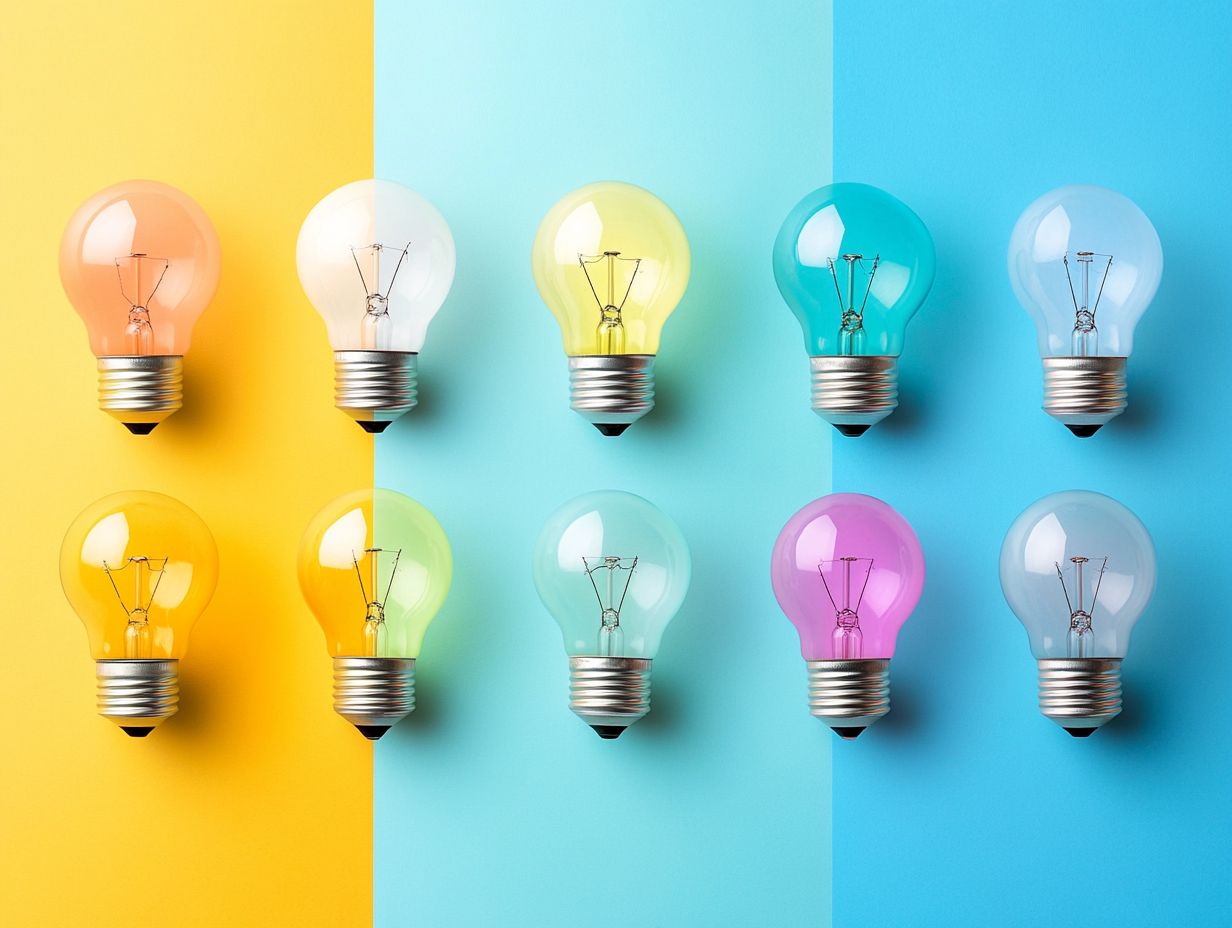
What are the 5 common energy efficiency myths?
The 5 common energy efficiency myths are: using energy-efficient light bulbs doesn’t make a difference, turning off electronics saves energy, using space heaters is more cost-effective, energy-efficient products are more expensive, and energy efficiency only applies to homes.
Is it true that using energy-efficient light bulbs doesn’t make a difference?
No, this is a common misconception. Energy-efficient light bulbs use up to 80% less energy and can last up to 25 times longer than traditional incandescent bulbs. This significantly reduces your energy consumption and saves you money on your electricity bill.
Does turning off electronics save energy?
Yes, turning off electronics when not in use can save energy. While they may not use as much energy as when they are turned on, they still consume energy in standby mode. Unplugging electronics or using a power strip can prevent this standby energy usage.
Are space heaters more cost-effective than central heating?
No, this is a common misconception. While space heaters may seem like a more cost-effective option, they actually use a lot of energy and can end up costing more in the long run. It is more energy-efficient and cost-effective to use central heating to heat your entire home.
Are energy-efficient products more expensive?
Not necessarily. While some energy-efficient products may have a higher upfront cost, they can save you money in the long run through reduced energy consumption. Additionally, there are often rebates and incentives available for purchasing energy-efficient products.
Does energy efficiency only apply to homes?
No, energy efficiency applies to all aspects of our daily lives, from our homes to our workplaces, transportation, and more. Making small changes to be more energy-efficient can have a positive impact on the environment and save you money on energy bills.
Explore how you can make energy-efficient choices today!

